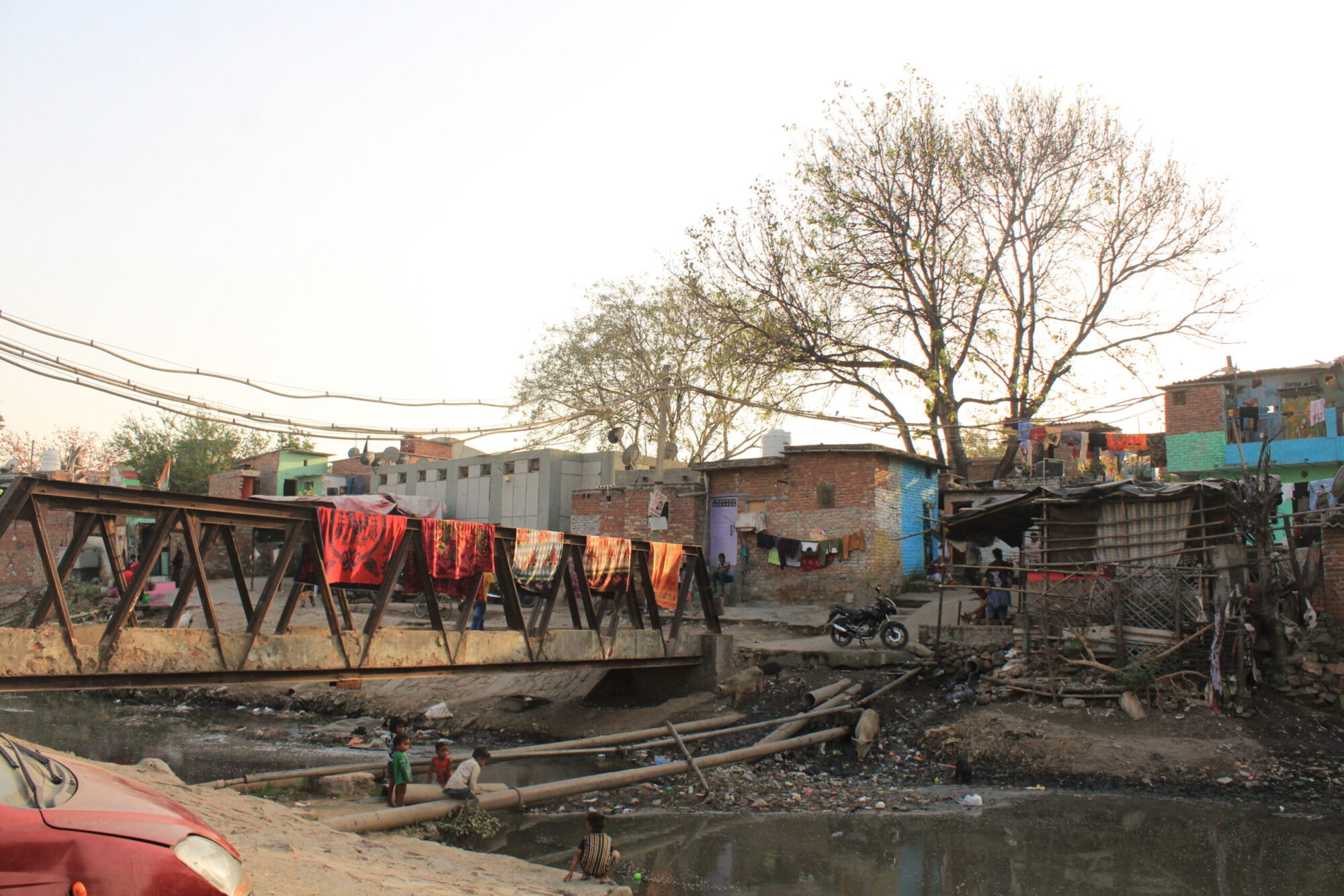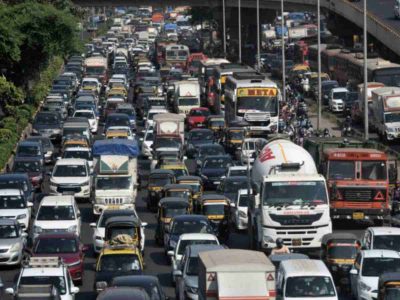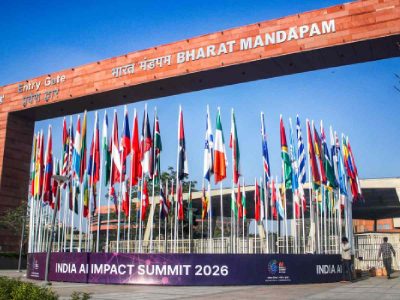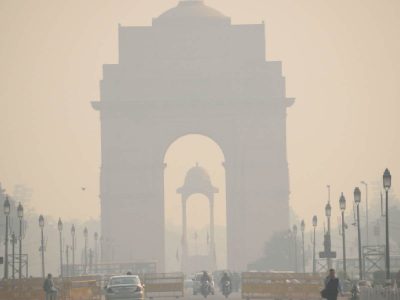Located in the heart of the Indraprastha (IP) estate is the Anna Nagar Jhuggi Jhopri (JJ) colony, a clustered settlement that houses some 1,000-3,000 houses. The sickening smell of sewage water pervades the air, as surrounding it are a couple of business offices, the PWD office, the Supreme Court and the Income Tax Office (ITO).
At one glance, the settlement may remind one of any other jhuggi in the capital. What may not be visible to the bare eye are the many diseases that the colony houses under its absurdly narrow lanes, the homes built on top of each other, open drainage breeding mosquitoes, all sort of insects and hazards, several clusters of tiny general stores packed between the houses, and no sunlight or clean air.
Families in this cluster, mostly migrant labour, have spent the last 25 years in this little corner of the city. They live an isolated existence, away from the promises of progress and free electricity, even as the state government claims to provide free electricity up to a certain usage limit to any house with a power connection.
Most of them are detached from the voting process as they are compelled to live life as nomads, migrating from one jhuggi to another in the NCR when the government orders evictions. On being asked about the party that he would be voting for in the forthcoming MCD elections, Gore, a ragpicker who is originally from a village near Allahabad in UP, tells us that he has no idea about the candidates. The father of seven children further says that he would not be able to vote because his voter card has not been updated ever since he was forced out of his jhuggi in Paharganj’s Motia Khan some 25 years ago.
“I had my voter ID made at Paharganj but we then had to move to Anna Nagar when our jhuggi was demolished sometime around 2002. We used to vote for the Congress party usually, although I would not mind if my family chooses to divide their votes and go for the other parties. We just hope to receive basic amenities while they (the winning party) also benefit from their win”, he says.
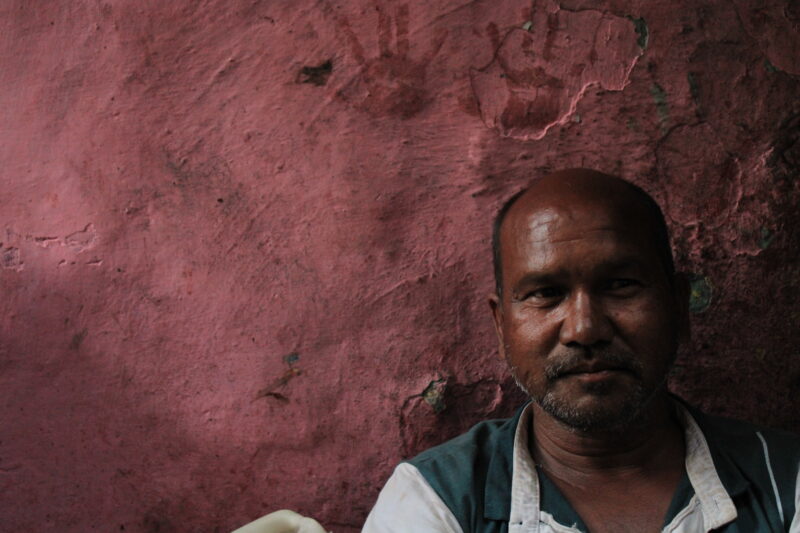
“The only way our family received a connection from the BSES was after one of my relatives was killed in an accident with the electric wires in the clustered jhuggi”, he adds as he takes us to his house in what might be the one of the narrowest and most infested lanes in the city.
The house comprises a single room with a bed, fan, bulb and a small kitchen space where a single stove with an LPG cylinder is used partially for cooking. The size of the room is what some in the city might only deem fit for a storage space. The women of the house use a mud stove for cooking in the open air.
While talking, Gore coughs constantly. He is sitting right beside the fuming stove which is being used by the daughter-in-law to make chapatis.
“We never got subsidised LPG. We have to use our own money to buy the gas cylinders. Who knows about the schemes meant for us! I have no idea”, he says.
Some of the residents here live in double-storey pucca (brick) houses — at least in essence. The houses here are constantly flooded with dirty sewage, especially during the monsoon. Major property damage is a constant issue due to the overwhelming sewer (nullah) that breaks the walls of multiple pucca houses in the JJ colony. This is followed by diseases like malaria.
Also Read: Sisodia orders officials to complete upgradation of drainages by May 31
“Last time the government showed us any support was when our houses were broken down by the overflowing sewage water which entered our homes back in 2020”, said Chote, who works as a cleaner along with his brother Gore under a company called Bansal Construction that supplies cleaning staff to Northern Railway.
He added that many of them, whose houses were broken or submerged in toxic water from the drains, were transferred to makeshift tents set up right beside the sewage area. .
Gore also points out that the electricity bills usually go anywhere between Rs 600 to 800, although they only have a light bulb and one fan running in their house. “We do get electricity all day long. However, during festivals or rainy seasons, we often face power outage and it takes time to get electricity back on again after such episodes,” he says.
Life at this jhuggi is mostly ravaged with stories of young deaths, unprocessed grief, hazardous accidents, missing children and labourers toiling for less pay than what they were promised.
Gore tells us that among his seven children, he also had a daughter who died at a very young age. Moreover, one of his children, a boy, has gone missing and they have no clue of his whereabouts. “He was caught up in some theft case that involved his friends, and now he is on the run trying to escape the police investigation. I am constantly afraid for his life but can’t do much”, he says.
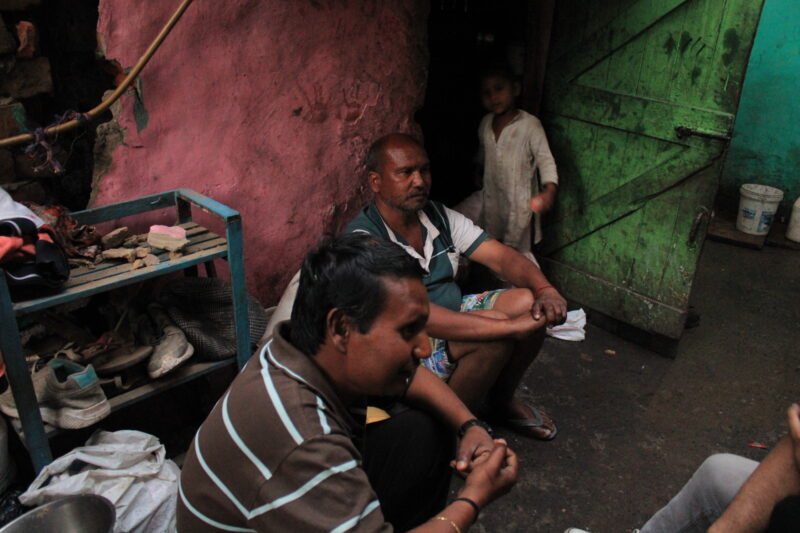
“If the police come here and start beating me up tomorrow, I will have to accept my fate. These days, kids have stopped paying heed to what their fathers say. Daughters seem to be more sensible”, remarks Gore, whose 14-year-old daughter Meenakshi has hardly ever left her home to study ever since she dropped out in class 4.
Meenakshi spends half the day helping her sister-in-law in cooking and does not have any productive activity for the rest of the day. “I used to walk to my school on Babar Road every day. While we did not have to pay for the school fee, the small allowance of Rs 1,800 that we received was never enough to suffice for school uniforms, books and stationery”, she says.
Chote tells us that they too walk through the railway tracks to reach the appointed location. “We are called at the Nizamuddin railway station first. Then, from there, we are allotted several different sites across Delhi railways”, he says.
He currently works at the Okhla-Harkesh Nagar railway station on a 6-7 hour shift. The work involves little to no security as the railways do not hire them directly. They are hired through private contractors which means they can be removed from their position at any time. Moreover, the sector is rife with corruption, as per the two.
Chote adds that the contractors get you a job if you are able to pay them a certain sum of money as kickback. “Everyone knows how these things work. Even if someone does pay the desired amount, they often end up kicking people out after a few months, and hire someone else who might offer an even larger bribe”, he states.
According to Gore, he received only Rs 8,000 for his job while the supposed amount was set at Rs 16,000. He has no clue where the rest of the money goes but hints at corruption of the middlemen. He has a bank account with the Karnataka Bank, he adds, where the last time he checked, his PF money amounted somewhere around Rs 36,000.
Also Read: AAP to launch campaign against corruption, garbage prevalence in Delhi
Claiming corruption even in the Provident Fund (PF) dispersal, he says, “One time, I thought I would withdraw Rs 3,000 and save the rest. After a few days post withdrawal, I went back to withdraw from my PF account, but the account status showed the balance as zero… I have no idea where the remaining Rs 33,000 went.”
To his shock, when he went to ask some officials about the missing money, he was told that the PF amount was never added into his account in the first place.
“We are like balls in a game, being kicked from one place to another”, Chote says with a grim chuckle, signaling to the extreme uncertainties that form every ounce of their existence as jhuggi dwellers in the city.
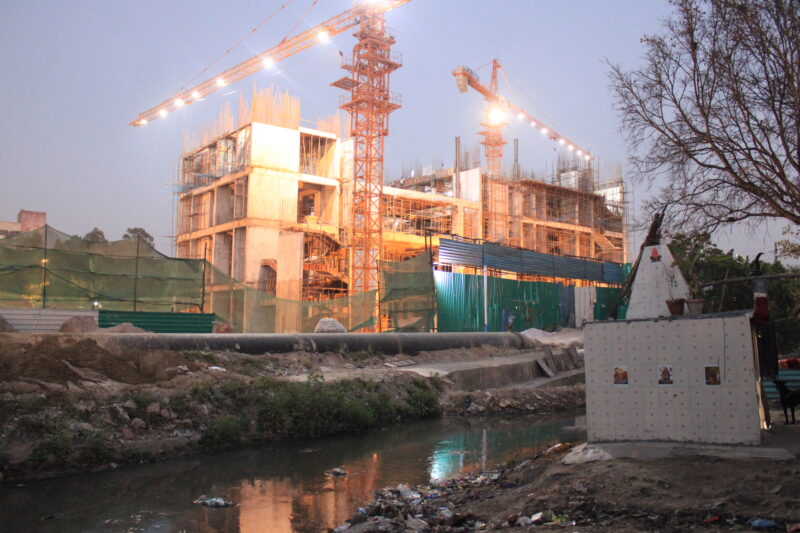
According to Gore and his brother, the Centre, state government or the WHO officials have never shown any signs of support towards improving the lifestyle here, although their prim and proper office premise overwhelms such settlements that hide behind.
The fear of undeclared evictions and unknown calamities are the collective feelings that the residents here share with each other. Their vulnerability brings to them a sense of community that the city fails to offer.
For more stories that cover the ongoings of Delhi NCR, follow us on:
Instagram: https://www.instagram.com/thepatriot_in/
Twitter: https://twitter.com/Patriot_Delhi
Facebook: https://www.facebook.com/Thepatriotnewsindia

